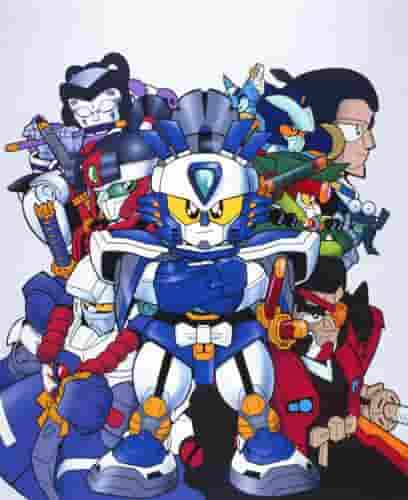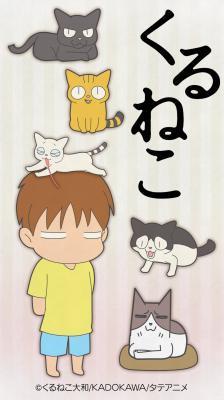The appeal and reviews of Samurai Giants: An anime experience not to be missed

Samurai Giants - Samurai Giants - Comprehensive evaluation and recommendation■ Public MediaTV anime series ■ Original Mediacomics ■ Broadcast periodOctober 7, 1973 - September 15, 1974 ■Broadcasting stationYomiuri TV ■Frequencieshalf an hour ■ Number of EpisodesEpisode 46 ■Original StoryOriginal story by Ikki Kajiwara, illustrations by Ko Inoue ■ ProductionAnimation Production: Tokyo Movie ■Works©Kazuo Kajiwara and Ko Inoue/TMS ■ StoryCoach Kawakami, who was looking for a player with a wild samurai spirit for the future of the Giants, learned of Banba Banba of Tosa Arashi High School in Kochi. However, Banba, who had a grudge against the Giants, refused the Giants' first pick at the draft meeting, but was persuaded by the scouts and those around him to join the team... Banba's arrogant behavior earned him the resentment of the other players, but with a samurai spirit that once he joined the team, it was his place to die, he trained hard and mastered various new magic pitches, growing into a great player who led the Giants to victory. ■CastBanba Ban: Kei Toyama / Yawata Tarohei: Rokuro Naya / Minami Rika: Reiko Muto / Banba Yuki: Rihoko Yoshida / Mayuzuki Ko: Makio Inoue / Taiho Mansaku: Nori Nishio / Wolf Chief: Takeshi Kuwahara / Kawakami Tetsuji: Shoichi Nishida / Nagashima Shigeo: Shunji Yamada / Oh Sadaharu: Tatsuyuki Ishimori and others ■ Main staffPlanning: Sano Juichi / Director: Nagahama Tadao / Screenplay: Dezaki Satoshi, Kaneko Yutaka, Yamazaki Haruya, Shichijomon, Matsuoka Seiji, Ando Toyohiro, Tani Asako / Storyboard: Yabuki Toru, Dezaki Satoshi, Tomino Yoshiyuki, and others / Animation Director: Otsuka Yasuo / Director of Photography: Wakana Akio, Owada Toru / Sound Director: Chiba Koichi / Art Director: Kobayashi Shichiro / Music: Kikuchi Shunsuke / Editing: Nakashizu Tatsuji (#1-24), Inoue Kazuo (#25-46) / Sound Effects: Kataoka Yozo / Cooperation: Weekly Shonen Jump, Tokyo Yomiuri Giants ■ Theme songs and music[OP1] Song: Samurai Giants (#1-24) / Singer: Shigeyuki Matsumoto / Lyrics: Tokyo Movie Planning Department / Composer: Shunsuke Kikuchi / Arranger: Shunsuke Kikuchi [OP2] Song: Champion Samurai Giants (#25-46) / Singer: Royal Knights / Lyrics: Ikki Kajiwara / Composer: Kazuo Masaoka / Arranger: Yuji Matsuyama [ED1] Song: Samurai Banba Ban (#1-18, 20-24) / Singer: Shigeyuki Matsumoto / Lyrics: Tokyo Movie Planning Department / Composer: Shunsuke Kikuchi / Arranger: Shunsuke Kikuchi [ED2] Song: Go! Bang Bang (#19, 25-46) / Singer: Royal Knights / Lyrics: Ikki Kajiwara / Composer: Kazuo Masaoka / Arranger: Yuji Matsuyama ■ Work evaluation and recommendation1. Story and Characters"Samurai Giants" is a TV anime series that aired from 1973 to 1974, based on a manga written by Ikki Kajiwara and illustrated by Ko Inoue. This work is a sports drama that depicts the growth and achievements of Banba Banba, a player with a wild samurai spirit who carries the future of the Giants. Banba Banba initially refuses to join the Giants, but after being persuaded by scouts and those around him, he decides to join. However, his arrogant behavior earns him the resentment of his teammates. Nevertheless, once he joins the team, he trains hard with the spirit of a samurai who considers it his last resort, masters various new magic pitches, and grows into a great player who leads the Giants to victory. Banba Banba's character is very attractive, and his growth story draws the viewer in. The other characters are also unique, especially Hachiman Tarouhei, Minami Rika, and Banba Yuki, who add excitement to the story. As Banba Banba grows, the relationships around him change, which adds depth to the story. 2. Animation and ProductionTokyo Movie was in charge of animation production, and Otsuka Yasuo served as animation director. Otsuka Yasuo's drawings are of extremely high quality, particularly in the baseball scenes, where the movements and expressions of the players are depicted realistically. Director Nagahama Tadao's direction is also superb, skillfully expressing the tension of the game and the psychological state of the players. Staff who would later go on to lead the anime industry, such as Yabuki Toru, Dezaki Satoshi, and Tomino Yoshiyuki, participated in the storyboard work, and it can be said that this work had a major influence on subsequent anime production. The camerawork by cinematographers Akio Wakana and Toru Owada is also excellent, with dynamic camera angles especially in the game scenes that draw the viewer in. Additionally, the background art by art director Shichiro Kobayashi is beautiful, and the atmosphere of the baseball stadium and the lifestyle of the players are depicted realistically. 3. Music and Theme SongThe music was composed by Shunsuke Kikuchi, and his compositions help to enhance the atmosphere of the work. In particular, the opening themes "Samurai Giants" and "Champion Samurai Giants", and the ending themes "Samurai Banba Ban" and "Go! Banbaban" are very memorable as songs that symbolize the theme of the work. Singers Shigeyuki Matsumoto and the Royal Knights also perform wonderfully, and the melodies and lyrics that resonate with the viewers' hearts further enhance the appeal of the work. 4. Cultural impact and evaluation"Samurai Giants" is one of the works that had a major impact on Japanese anime culture in the 1970s. It is particularly highly regarded as a sports anime, and can be said to be a pioneer of baseball-themed anime. The character of Banba Ban also had a major impact on the protagonists of later sports anime. The theme of the work, "samurai spirit," teaches viewers the importance of courage and hard work, and it continues to be loved by many people. This work has been highly praised since it was first broadcast, and is still popular with fans today. It is a must-see for baseball and sports anime fans in particular. The manga, written by Ikki Kajiwara and illustrated by Ko Inoue, is also very popular, making it an anime adaptation that fans of the original work cannot miss. 5. Recommendation points"Samurai Giants" is not only a sports anime, but also a very worthwhile human drama. It is packed with various elements, such as the story of Banba Banba's growth, the changes in the relationships surrounding him, the tension of the game, and the psychological portrayal of the players. In addition, Shunsuke Kikuchi's music and theme songs also enhance the appeal of the work and have the power to draw viewers in. I would especially recommend this to people who like baseball and sports, sports anime, and human dramas. I would also recommend this to people who are interested in the anime culture of the 1970s and to people who like the works of Ikki Kajiwara and Ko Inoue. Samurai Giants is a work that teaches viewers the importance of courage and hard work, and it is a masterpiece that continues to be loved by many people. 6. Supplementary InformationThe original manga of "Samurai Giants" was serialized in Weekly Shonen Jump, and it had a big impact on boys at the time. In addition, with the cooperation of the Tokyo Yomiuri Giants, realistic baseball scenes were depicted, making it a particularly worthwhile work for baseball fans. Furthermore, the baseball boom was in full swing at the time of broadcast, and this background also boosted the popularity of the work. This work can still be viewed on DVD and Blu-ray, and is also rebroadcast at the request of fans. In addition, many reviews and impressions by fans are posted on the Internet, where you can learn about the evaluation and recommended points of the work. Furthermore, related books and goods are also sold, making it a valuable collection item for fans. 7. Summary"Samurai Giants" is a TV anime series that aired from 1973 to 1974, based on the manga written by Kajiwara Ikki and illustrated by Inoue Ko. This work is a sports drama that depicts the growth and achievements of Banba Banba, a player with a wild samurai spirit who carries the future of the Giants. Banba Banba's character is very appealing, and his growth story will draw viewers in. The other characters are also unique, and characters such as Hachiman Tarouhei, Minami Rika, and Banba Yuki add excitement to the story. Tokyo Movie was in charge of animation production, and Otsuka Yasuo served as animation director. Otsuka Yasuo's drawings are of extremely high quality, particularly the movements in the baseball scenes and the expressions of the players, which are depicted realistically. Director Nagahama Tadao's direction is also superb, skillfully expressing the tension of the game and the psychological portrayal of the players. The music was composed by Kikuchi Shunsuke, and his compositions help to liven up the atmosphere of the work. In particular, the opening themes "Samurai Giants" and "Champion Samurai Giants", and the ending themes "Samurai Banba Ban" and "Go! Banbaban" are extremely memorable songs that symbolize the theme of the work. "Samurai Giants" is one of the works that had a major impact on Japanese anime culture in the 1970s, and is highly regarded as a sports anime, and can be said to be a pioneer of baseball-themed anime. The character of Banba Ban also had a major influence on the protagonists of later sports anime. The theme of the work, "Samurai Spirit," teaches viewers the importance of courage and hard work, and it continues to be loved by many people. I highly recommend this work to anyone who likes baseball or sports, sports anime, and human drama. It is also recommended for those who are interested in the anime culture of the 1970s and those who like the works of Ikki Kajiwara and Ko Inoue. "Samurai Giants" is a work that teaches viewers the importance of courage and hard work, and it can be said to be a masterpiece that continues to be loved by many people. |
<<: The appeal and reviews of "Cutie Honey": Recommendations for modern anime fans
>>: The appeal and evaluation of "Adventure Koropokkuru": A must-read review for fans
Recommend
The appeal and reviews of High School DxD DX.2 [Limited Edition with Blu-ray]: What is the must-see content for fans?
Detailed review and recommendation of High School...
"Beautiful Name": Reassessing the moving song of everyone
Beautiful Name - Minna no Uta "Beautiful Nam...
The ranking of the total sales of Japanese comics of all time is released. Dragon Ball ranks third and Conan ranks fifth
The magical year of 2020 is about to pass, and su...
The latest trailer of the remake of "Space Battleship Yamato" will be released on July 19
The first chapter of the latest movie "YAMAT...
Deadpool vs. Wolverine grosses over $1.28 billion worldwide
Since its release on July 26 this year, the globa...
The director is too busy! The movie "Star Wars: Rogue Squadron" has been postponed indefinitely
The Star Wars film Star Wars: Rogue Squadron, dir...
The Honor Student at Magic High School: Its Evaluation and Appeal as a Spin-off
The Honor Student at Magic High School overview T...
The official complete narrative timeline of the Star Wars series only has the Solo story left
The seventh and final episode of Disney's lon...
Theatrical version of "One Piece: STAMPEDE" Hong Kong version Chinese trailer all members will gather on August 22
At the end of last year (2018), to commemorate th...
Pixar animated film "Onward" Chinese trailer Holland and Star-Lord voice
Today (October 11), Pixar officially released the...
Light novel "My Little Sister Can't Be This Cute! (15) Black Cat if Part 1" will be released in September
According to new official information, the light ...
"Love Apartment 5" new trailer Hu Yifei and Zeng Xiaoxian got married
Today (December 23), the official TV series "...
Haikyu!! A thorough analysis of the heated match between Karasuno High School and Shiratorizawa Academy High School!
Haikyu!! Karasuno High School VS Shiratorizawa Ac...
The full list of winners of the 76th Golden Globe Awards was announced, and "Green Book" became the biggest winner
The complete list of winners of the 76th Golden G...
Detailed review and evaluation of the new A Channel OVA
A Channel New OVA - A Channel New OVA overview &q...









